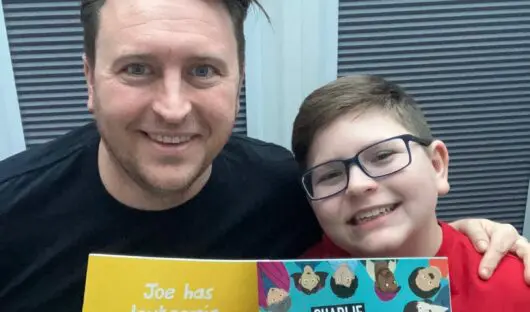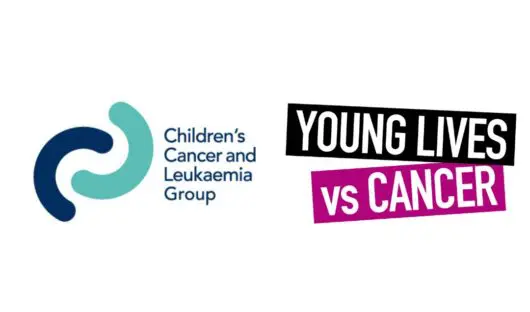Posted on Tuesday 5 September 2023
Charity finds having cancer adds almost £700 a month to outgoing for young cancer patients and their families, and for majority this coincides with significant loss of income
- Having cancer adds almost £700 a month to outgoings for young cancer patients and their families
- The majority also suffer a loss of income and earnings as a result of reducing hours or taking time off for treatment
- For almost a third, this loss of income and earnings is £10,000 or more
- Nearly a third of households said at least one of the adults had to stop work entirely following the young person’s cancer diagnosis
New research from charity Young Lives vs Cancer shows the financial cost of having a child with cancer, or cancer as a young person, is significant, with the average additional costs for young cancer patients and their families hitting almost £700 a month. These additional costs – referred to in the report as ‘the cancer premium’ – often coincide with the need for those affected to reduce hours or take time off to attend treatment or look after their child. This results in a simultaneous financial impact – referred to as ‘the cancer penalty’. The research was sponsored by the protection insurance company Guardian.
Of the almost £700 a month of additional expenses for households following a young person’s cancer diagnosis, travel was found to be the biggest single additional expense at a monthly average of £250, reflecting the need to get to appointments and treatment. Food was the second biggest additional monthly expense at £144, followed by energy bills at £68, clothing at £56, toys and treats at £48, and childcare for other siblings at £30, all of which were incurred as a direct result of attending or recovering from cancer treatment. Parking was found to add a monthly £24, additional telephone bills £15, and accommodation £14 a month.
Not only are these additional monthly costs high, but they’ve also risen in recent years, with the figures in 2023 representing a 15% increase for young cancer patients and their families compared to similar research run by Young Lives vs Cancer in 2017.
On top of the cancer premium, over two thirds (71%) of the young cancer patients and their families contacted during the research had experienced loss of income or earnings because they needed to make changes to their work schedule, with the average loss reported as more than £6,000 a year. For nearly a third (31%), the fall in their income and earnings was even bigger, with a loss of £10,000 or more. Of the households with someone employed prior to the diagnosis, for nearly a third (32%) the income losses resulted from at least one of the adults stopping work entirely.
Alastair had to stop working when this son Gideon was diagnosed with very aggressive malignant cancer called Rhabdomyosarcoma when he was four years old. His employer gave him statutory sick pay, and with his wife unable to work due to illness, the family struggled financially.
Alastair said: “We were living on savings and would have had to sell our house if we had not had an amazing bunch of friends that ran a GoFundMe campaign and raised about ten grand for us, which was phenomenal.”
“We had to be quite brutal, every bill that we could cancel got cancelled. You know you’ve got to buy extra bedding, you’ve got extra electricity costs because you’re doing a lot more laundry, and when you’re in hospital and have to eat, you end up spending more than you would on home cooked meals. We’d have been much more adrift without any signposting or practical help from Young Lives vs Cancer.”
“The registration grant we got from Young Lives vs Cancer in the first weeks, it was a wonderful thing. Just what it represented, for us to really believe that there were actually people out there who wanted to help.”
Rachel Kirby-Rider, Chief Executive at Young Lives vs Cancer, said: “The impact of a young person having cancer is devastating on so many levels, and this research shows just how difficult it can be for families financially. The financial support that young people and their families are entitled to rarely covers the additional financial burden, and that’s before you consider any lost income as a result of young people and parents needing to reduce hours or take time off. This is why Young Lives vs Cancer exists: to raise awareness of the issues faced by young cancer patients and their families, and to support them to face everything that cancer throws at them.”
Rachael Welsh, Head of Marketing at Guardian said: “It’s sad and shocking to think that, on top of the emotional turmoil of having a child with cancer, the families of these young people must find almost £700 a month on top of their normal outgoings to simply cover the cost of their child having the illness. It’s even more worrying when you consider that alongside this extra expense, over two thirds of the families affected are also impacted by a significant loss of income and earnings. No family should have to go through financial hardship at the very time they’re dealing with their child’s cancer. That’s why we sponsored this important piece of research – to raise awareness of the issue – and to highlight to financial advisers, their clients, and the population at large that the protection industry is there to help families protect against this risk.”
ENDS
Notes to Editor
The research involved an online survey with a total of 259 participants and follow-up interviews. The participants included parents or caregivers of children and young people under 27, as well as young people aged 18 to 26, who have undergone cancer treatment and care within the past two years.
For more information please contact Alison Millar, Senior Media and Communications Officer at Young Lives vs Cancer via alison.millar@younglivesvscancer.org.uk or 07775 723 755.
Read the full Cancer Costs report
